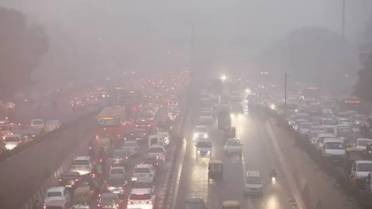Express View on Delhi’s pollution crisis: A dreary winter
Delhi’s problems with poor air quality usually attract attention during late autumn, especially in the run-up to , and after, Diwali. That’s when stubble burning is at its peak in the states neighbouring the NCR. However, data shows that good or even moderately satisfactory air eludes the capital’s residents for most parts of the year, especially in winter. This season has been particularly harsh for the city’s residents this year, bringing back memories of 2016 when the Delhi government was forced to implement the odd-even scheme of road rationing at the Supreme Court’s directive . On Sunday, Delhi registered severe on the AQI register.
The Commission for Air Quality Management (CAQM) — the Union government pollution monitoring agency set-up in 2021 — has resorted to a familiar set of measures. It has brought back the ban on the construction and BS-III petrol and BS-IV diesel four-wheelers. These measures might provide temporary relief. But from the history of the NCR’s pollution crisis, one thing is clear — Delhi, and most Indian cities, need an all year action plan to improve air quality.
There is now considerable information on the variables linked to the capital’s pollution. But data is only an enabler — it can facilitate action. The CAQM is mandated to do that. But the agency has functioned more like a regulator whose primary responsibility is to implement the Graded Action Response Plan, which comes-into play when bad air becomes an emergency.
At times , the Commission has taken stock of measures to control dust in the capital. It needs to do more. CAQM hasn’t, for instance , developed a synergy between the different bodies whose work is crucial to ensure that residents in the capital and its neighbourhood breathe clean air — the Delhi government, CPCB, the city’s transport department and emission monitoring outfits in the NCR.
In 2019, the government launched the National Clean Air Programme (NCAP) to reduce pollution by 20-30 per cent by 2024 compared to 2017. In 2022, the programme’s goalposts were shifted — 40 per cent reduction in pollution by 2026. Most independent studies show that progress under NCAP has been slow and at best incremental . Last month, the Centre told Parliament that cities in Delhi-NCR have utilised less than 40 per cent of the funds allocated to curb air pollution. The omissions are clearly at multiple levels. Measures to improve matters, even when they have been made, are not showing results.
